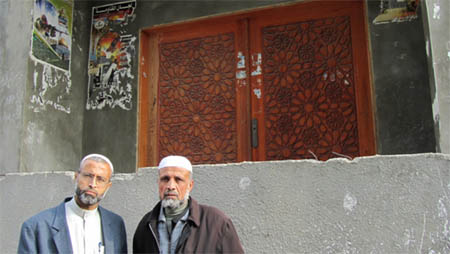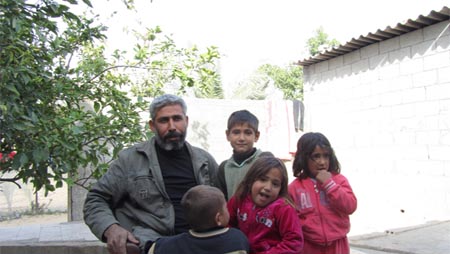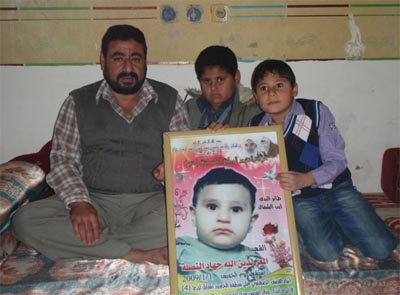Tag: Palestinian Centre for Human Rights
-
3 January 2009: Motee’ and Isma’il as-Selawy
3 January 2012 | Palestinian Center for Human Rights “What affected us a lot psychologically is the fact that we were all praying in the mosque when we were attacked. The mosque is a place where we go when we need relief or when we are sad. We could never imagine them targeting us while we…
-
2 January 2009: Eyad al-Astal
2 January 12 | Palestinian Center for Human Rights “The second of January is no different from any other day. Every day and every minute feels like the moment when I lost my sons. In everything there is a memory of them. I miss them all the time.” On 2 January 2009 at around 14:30 an…
-
1 January 2009: The Nasla family
1 January 12 | Palestinian Center for Human Rights “I wish that if our fate is to die, that we die together, I wouldn’t want anybody left to have to bear this sort of pain” On 1 January 2009 at around 15:00, Israeli military planes targeted a water tower across from the home of the Nasla…



